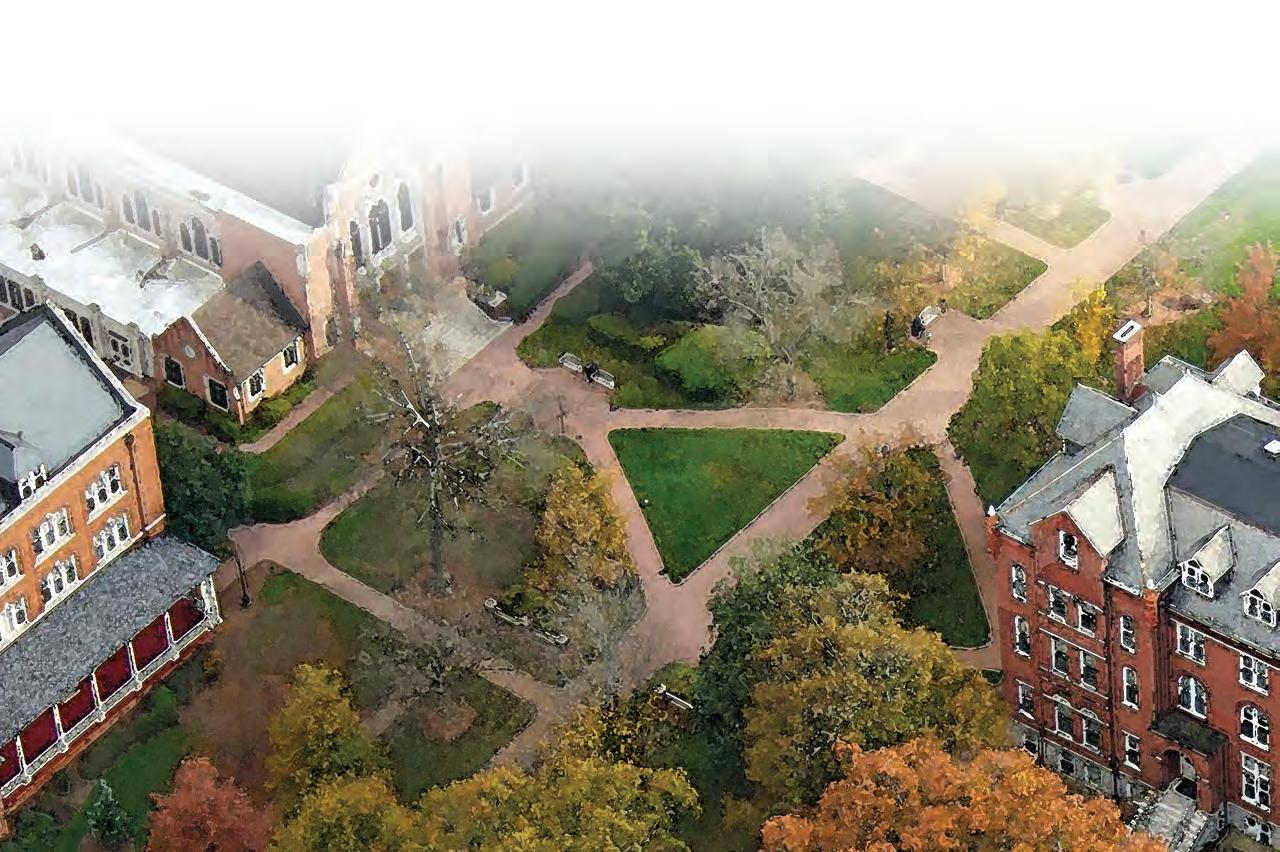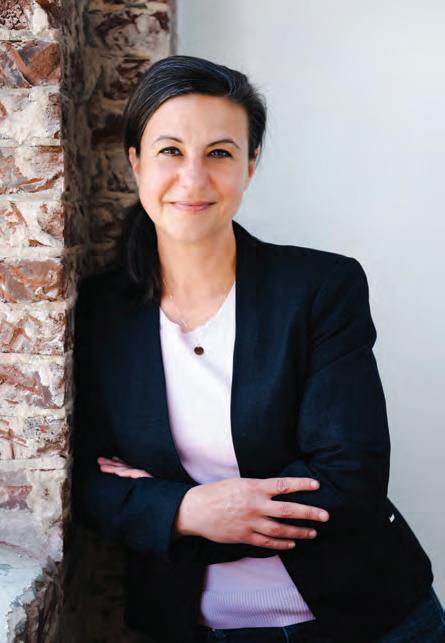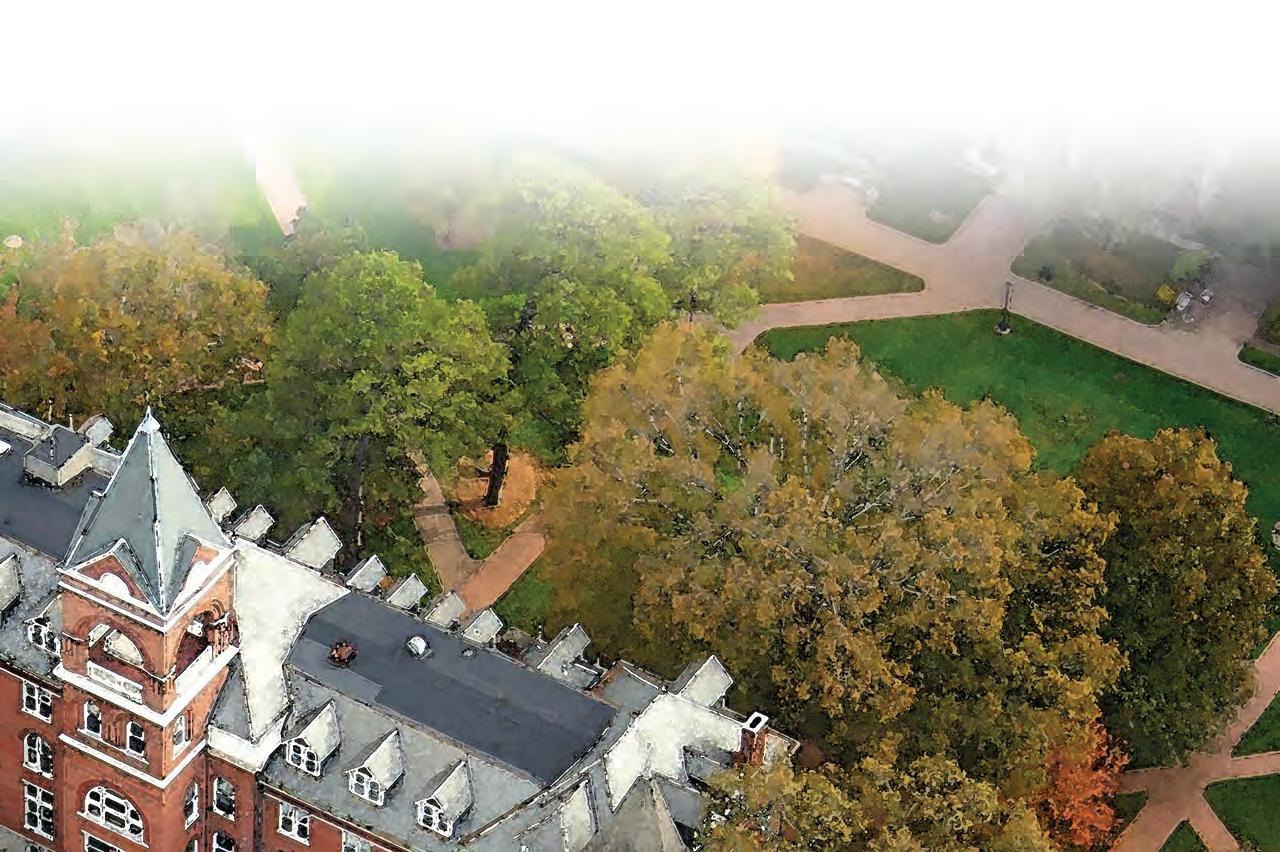
3 minute read
staff focus
Getting To Know Rachel Bowser
BY SARA BAXTER
On July 1, 2022 Rachel A. Bowser joined Agnes Scott College as vice president for academic affairs and dean of the college, succeeding Christine Cozzens, who retired in May after 40 years at the college. Bowser came to Agnes Scott from Georgia Gwinnett College, where she worked for 10 years, most recently as associate provost for strategic initiatives and professor of English. In that position, she focused on closing equity gaps, leading retention initiatives and overseeing curricular and cocurricular interventions centered around students’ sense of belonging and professional purpose. A graduate of Grove City College, Bowser holds a doctorate from Emory University and a master’s degree from West Virginia University, both in English. The magazine team sat down with Bowser to learn more about her and her vision to lead Agnes Scott College into the future.
What attracted you to the opportunity to serve as Agnes Scott’s VP for academic affairs and dean of the college?
I am lucky to have absolute clarity on how I want to spend my time and energy: increasing access to higher education and equity of outcomes in higher education, helping women [of every identity] understand themselves as leaders and being in a beautiful environment as often as possible. To join a community that checks off all these boxes is an opportunity few get and for which I am grateful.
While at Georgia Gwinnett College, you served as associate provost for strategic initiatives. What’s an example of a strategic initiative that you led or oversaw there?
My work often involved trying to understand barriers to student success, and then providing faculty with tools to remove them. For example, I have led work that looked at student success as correlated with the number of credit hours they enrolled in and provided faculty with data and messaging to use to encourage students to take the “best” credit load. I have examined the impact of enrolling in a learning community for students who were academically at risk for a combination of reasons and assisted faculty in developing a curriculum that is integrated within the learning community. We know the pandemic presented an immediate and acute barrier, followed by a cascade of smaller, sometimes more invisible challenges. At Georgia Gwinnett College, I worked with staff and faculty to problem-solve and offer solutions to help students be as successful as possible during that challenging and exhausting period.
How does the current device-driven world, where attention spans are shrinking, affect how college instruction is delivered?
When we talk about students and devices, especially in classroom settings, we often talk about what they are “paying” attention to. I try to think about that verb as literally as I can and to remember that the ubiquity of handheld devices has changed the attention economy. The phone in my hand makes it easy for me to spend attention wastefully, but also allows me to save attention for other uses if I can access content quickly and efficiently. Does it balance out? I don’t know.
Experiences outside the classroom are an integral part of the college’s SUMMIT curriculum. Do you see those experiences changing or growing in the years ahead?
Agnes Scott will continue to lead in connecting our students with the world around them, and the last few years have highlighted the urgency of that connection. Experiential learning of all types — internships, service learning, fieldwork — is embedded throughout our curriculum. SCALE allows students to draw a straight line from classroom learning to applied professional experience. Journeys makes the whole world an Agnes Scott classroom. We know what these experiences mean to our students, and we will continue to shape them in response to how students help us understand their value.
What makes the unique education provided by a women’s college important today?


Women of all identities encounter significant cultural obstacles in pursuit of personal and professional growth; that is true always, everywhere. Right now, many of those challenges are acute and regressive. I cannot imagine a better incubator for progress and solutions than an environment in which diverse women, trained in the liberal arts, learn to think critically, live honorably and engage the intellectual challenges of our time.
What might people be surprised to learn about you?
Of course, I don’t consider anything about myself surprising — it all makes perfect sense to me! But I can say that people often are surprised to learn that I like weak coffee and cheap beer, that I am equally comforted by baseball and poetry, and that every single time I see a sunset, I am amazed that it’s offered for free every day.










